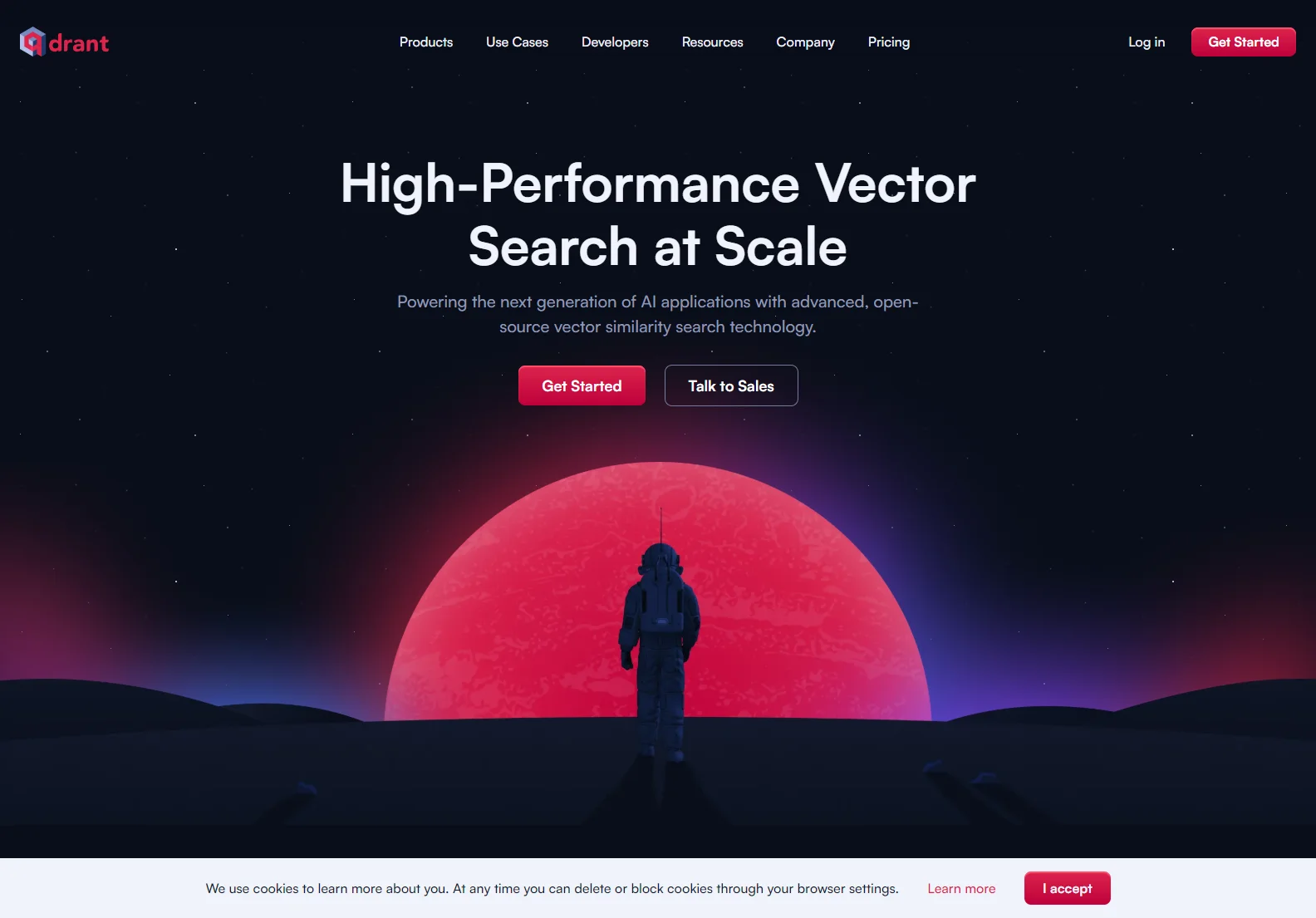Qdrant: High-Performance Vector Search at Scale
Qdrant is a powerful, open-source vector database designed for high-dimensional vector similarity search. It's built to handle massive-scale AI applications, offering speed, scalability, and ease of use. This article will explore Qdrant's key features, use cases, and how it compares to other vector databases.
Key Features
- Cloud-Native Scalability & High-Availability: Qdrant is designed for scalability and high availability, allowing for seamless scaling and zero-downtime upgrades.
- Ease of Use & Simple Deployment: Quick deployment is possible in any environment using Docker and a lean API, making it ideal for local testing and integration.
- Cost Efficiency with Storage Options: Built-in compression and the ability to offload data to disk significantly reduce memory usage.
- Rust-Powered Reliability & Performance: Developed in Rust, Qdrant boasts unmatched speed and reliability, even when processing billions of vectors.
- Advanced Search Capabilities: Qdrant excels at processing high-dimensional data, enabling nuanced similarity searches and a deep understanding of semantics. It also handles multimodal data with speed and accuracy.
Use Cases
Qdrant's versatility makes it suitable for a wide range of applications:
- Advanced Search: Elevate your applications with advanced search capabilities, understanding context and semantics in depth.
- Recommendation Systems: Create personalized recommendation systems with tailored suggestions using flexible recommendation APIs.
- Retrieval Augmented Generation (RAG): Enhance AI-generated content quality by leveraging efficient nearest neighbor search and payload filtering for seamless data integration.
- Data Analysis and Anomaly Detection: Identify patterns and outliers in complex datasets for robust, real-time anomaly detection.
- AI Agents: Empower your AI agents to handle complex tasks and adapt in real-time with Qdrant's powerful vector search and scalable infrastructure.
Comparisons
Compared to other vector databases like Pinecone and Weaviate, Qdrant offers a compelling balance of performance, ease of use, and open-source accessibility. While Pinecone excels in managed services, Qdrant provides more control and customization. Weaviate, another strong contender, focuses on graph databases, while Qdrant prioritizes speed and scalability for vector search.
Conclusion
Qdrant is a robust and versatile vector database ideal for powering the next generation of AI applications. Its combination of high performance, scalability, and ease of use makes it a strong choice for developers seeking a powerful and efficient solution for vector similarity search.

